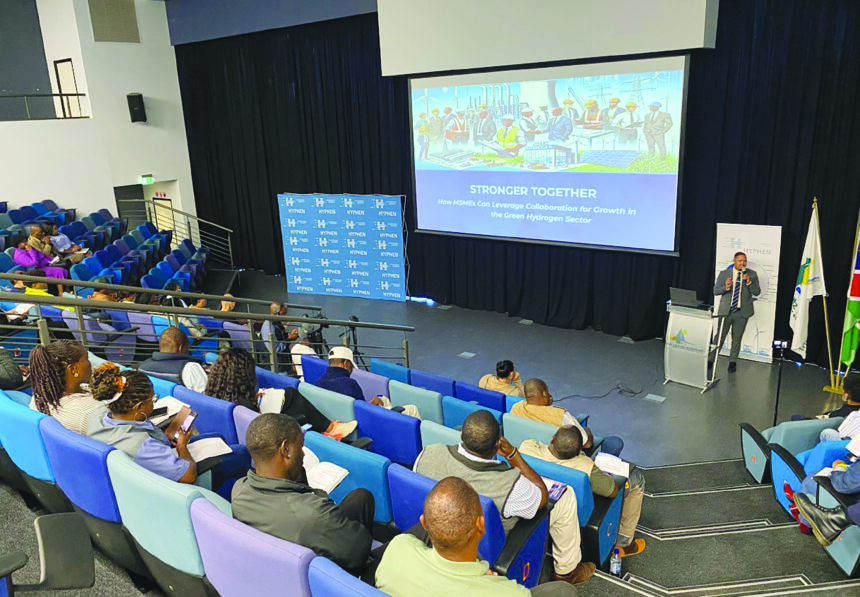Hyphen Hydrogen Energy’s recently-launched Local Content Roadshows (LCRs) aim to share the initial results of a baseline study investigating potential local content opportunities for Namibian businesses to participate in the Hyphen project. Hyphen has launched roadshows with the Namibia Investment Promotion Development Board (NIPDB) and the Namibia Chamber of Commerce and Industry (NCCI).
The LCR is part of Hyphen’s commitment to early engagement, providing economically-relevant information to help local businesses prepare for the opportunities during the construction and operation phases.
The first series of LCR community and business sessions was hosted in Swakopmund on 27 February, Oshakati on 14 March, and the third engagement in Lüderitz on 27 March, with more than 200 businesses participating. More town visits are scheduled in the coming months.
Toni Beukes, Head of ESG at Hyphen, said “Hyphen is committed to ongoing communication with the local business community, and we look forward to continuing with the LCR. We want to ensure that we have a transformational and positive impact on local businesses, job-creation, training and education across Namibia, and so we truly appreciate the participation we have seen so far. We would urge local businesses to keep an eye out for our sessions.” The LCR events were also an opportunity to share the initial findings of the study Hyphen is carrying out, highlighting potential local content packages and revealing constraints within the local market.
The study involves comprehensive value chain mapping of at least 13 engineering infrastructure components that make up the Hyphen project.
This includes wind, solar, battery energy storage systems (BESS), electrolysis, transmission, roads, green hydrogen (GH2) pipeline, water (H2O) pipeline, ammonia (NH3) synthesis, storage, export, desalination and air separation.
Hyphen elaborated via a statement that the mapping is needed to identify “local content packages” by assessing the value of potential opportunities against; and the level of specialisation required for each component. Hyphen noted it recognises that ‘low-hanging opportunities’ within this emerging sector typically fall within the low to medium levels of specialisation, but this can still deliver significant value for local businesses. Additionally, the study assesses the capacity and capability of Namibian entities to engage with these local content packages.
The LCR events are set up to be interactive, and local people and businesses have had the opportunity to ask representatives from Hyphen questions, and learn more about the project and the opportunities it offers. During these engagements, NCCI acknowledged and shared with the audience the challenges to entry that particularly Micro, Small and Medium Enterprises (MSMEs) face. In response to these insights, Hyphen shared an initial vision for actively involving MSMEs in the project through its proposed Enterprise and Supplier Development Programme, currently under development.
“The green hydrogen industry, like the broader energy sector, requires scale, quality and innovation. For SMEs working on large commercial projects, collaboration is not optional; it is imperative. That’s why we are out on the road, engaging with businesses to help them understand how to prepare to make the most of the opportunities this green hydrogen presents,” said Claudia Capelao, manager at NIPDB.



